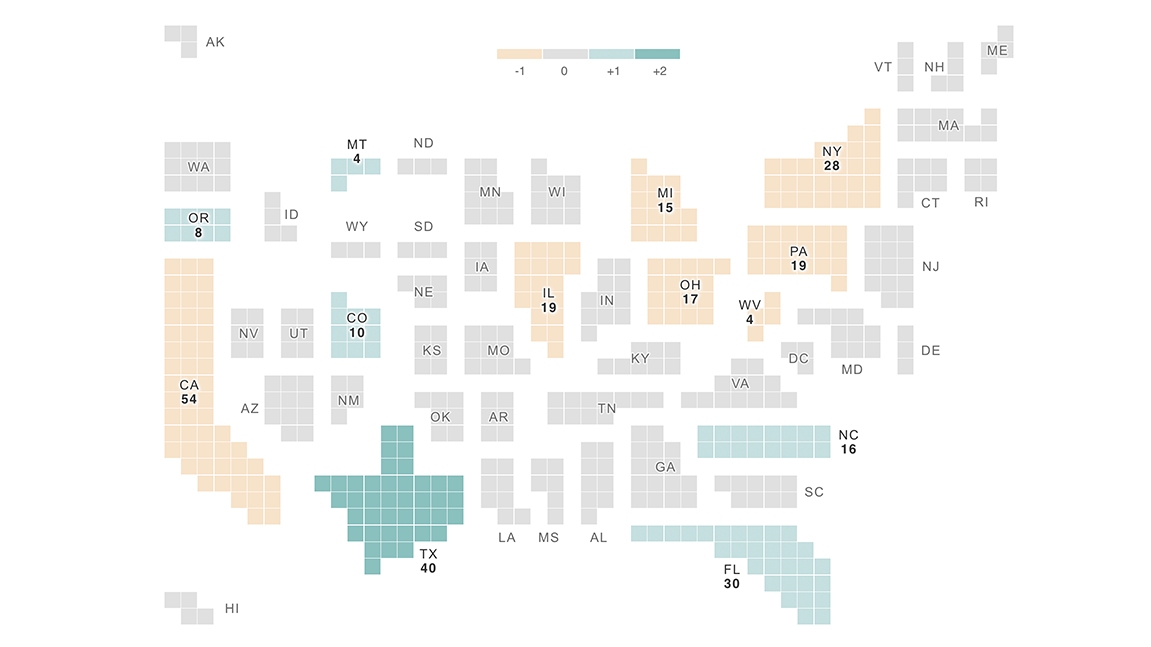numbers recorded by the 2020 census. Zach Levitt/NPR hide caption

Some states have gained or lost Electoral College votes because of changes in population numbers recorded by the 2020 census.
Zach Levitt/NPRThe first set of results from the 2020 census are in, and according to the count, the official population of the United States is 331,449,281.
The census affects how many seats each state has in the House, as well as the number of votes they have in the Electoral College. With Monday's announcement, some states saw their representation practically grow overnight.
Texas, Colorado, Florida, Montana, North Carolina and Oregon all gained seats in Congress, while California, Illinois, Michigan, New York, Ohio, Pennsylvania and West Virginia each lost one.
Historian Dan Bouk of Colgate University says it used to be that the House grew with the U.S. population, but that changed after the 1920 count. Now, there's an automatic process for reshaping the House after each census at its existing size — 435 seats.
NPR's census correspondant Hansi Lo Wang and congressional correspondent Susan Davis explain more about what these first results mean for the balance of power in America.
Email us at
This episode was produced by Brent Baughman, Brianna Scott and Lee Hale. It was edited by Sami Yenigun with help from Wynne Davis and Acacia Squires. Our executive producer is Cara Tallo.

 Live Radio
Live Radio